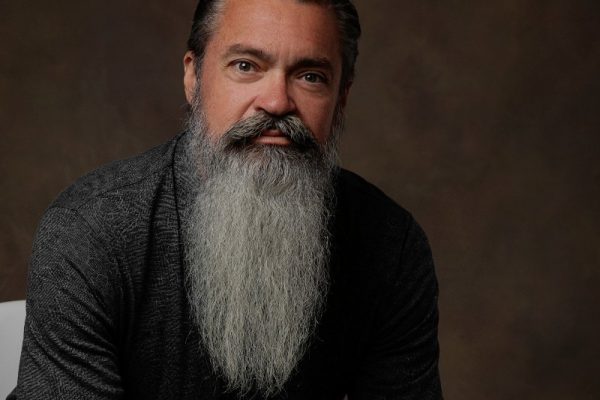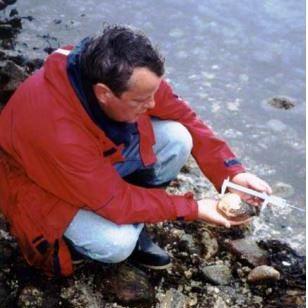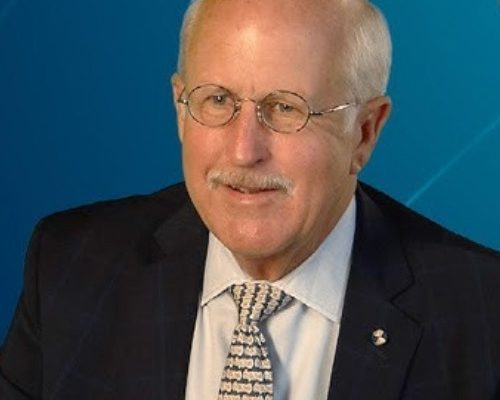SPEAKERS
Lourdes Gant, Rocky Boschman
Lourdes Gant 00:05
As a business owner of an aquaculture company, how can you take the first step to be profitable and sustainable at the same time? That’s what we’re going to be talking about in these episodes. Hello, and welcome to the Business of Agriculture podcast. This is the podcast for the Sustainable Business movement in the aquafarming and ocean ranching industries.
This podcast aims to amplify the voices of entrepreneurs addressing the United Nations global goals, aka Sustainable Development Goals. Number 14. To conserve and sustainably use the oceans and the seas, listening to fellow business aquaculturists in their journey in this new model of food production, of making their business sustainable, and help the ecology of the ocean, while also making a profit all at the same time. Get inspired to learn how even small to medium businesses can make an impact, save the seas, leave a legacy, and have a better quality of life.
One of our goals is to take away a nugget of wisdom that will help your business move from the industrial revolution to business 5.0. Our vision is that of collaboration in the aquaculture industry. I’m Lourdes Gant, your host. As an agriculture business owner, how do you tackle the balance in being able to run a sustainable business and being profitable at the same time? That’s what we’re going to be talking about in this episode. Welcome to episode nine of the business of agriculture. In this episode, I’m delighted to have Mr. Rocky Boschman who is the Managing Director of Grieg Seafood. Welcome, Rocky.
Rocky Boschman 01:49
Thank you. It’s great to be here. Thanks.
Lourdes Gant 01:51
Mr. Rocky Boschman is the Managing Director of Grieg Seafood. He’s demonstrated a history of building and leading strong management teams in the aquaculture space. He’s skilled in salmon farming, change management, and communication. He’s a strong business development professional with a master’s in Business Administration focused in leadership from Royal Roads University. I hope and I know that you will enjoy this session. If you listen to our 10th episode, my episode from last time I lost count on the numbers. So I may be saying the wrong number.
I interviewed Mr. Keith Reed and he discussed how they are now created their family business for the second generation of oysters agriculturists. But today we’re going to be talking about maybe someone our culture and maybe Rocky is going to enlighten us on what’s going on in that species. So welcome again, Rocky, thanks for being here.
Rocky Boschman 02:45
Thanks.
Lourdes Gant 02:46
So my first question is, maybe you can give our audience a little bit of background on how you got started in this industry.
Rocky Boschman 02:53
Yeah, you know, you might hear this story again, and again, because this isn’t unique for me. But I actually grew up in this very centre of Canada, Saskatchewan, which is about 1500 kilometers from any ocean in any direction you might go. But as a little kid, you know, I was really fascinated by the ocean. And when I was a kid, the only way that we could learn anything about the ocean or sea pictures or sea film was through Jacques Cousteau.
There was no Google, we couldn’t just look at pictures. We couldn’t see anything. It was Jacques Cousteau on Sunday night. And that’s how we learned about the ocean. And he really was a hero of mine. And I was very fascinated by Jacques Cousteau and the ocean. And sometimes when I was a little kid sometime in the early 70s, Jacques Cousteau, in one of his programs said that we must plant the sea and hurt its animals using the sea as farmers.
So this is a very famous quote by Jacques Cousteau. He said that that’s what civilization is all about farming replacing hunting. And for some reason, that really resonated with me, you know, it’s a call to action. And it sort of was able for me now to see why was the ocean important to me, and what could I do in the future. And so born and raised in Saskatchewan, but I moved out to be sea ended a marine biology degree at the University of Victoria.
And when I graduated in the mid-80s, the salmon farming industry was just beginning. And I was able to graduate and get a job in a small commercial hatchery. And essentially, it’s all I’ve ever done as a career now is working some aspect or facet of salmon farming.
Lourdes Gant 04:34
Well, the industry is honoured to have you I always admire people who have been in the industry for quite a bit. I’m only in the agriculture space for 13 years now. But kudos to all of the people who started this industry because I’m sure you’ve probably seen a lot of changes, which lead me to my second question. So what do you think are the pros and cons in terms of, I guess the species That you guys school debate at Greg seafood or the industry in general?
Rocky Boschman 05:05
Well, for ocean-based aquaculture, which was mostly what salmon farming is in the world, the biggest con is this conflict, of doing business in the public space. It is the tragedy of the commons. It’s that’s how it’s perceived. And people are rightfully, always very wary and very concerned about companies using the public space as their main place of operation. So this conflict plays itself out in many ways.
And you know, you can just follow the media on a constant basis to find out that British Columbia in particular is a very complicated place to grow salmon, because of the politics, and it is really because of this conflict. And so, like a salmon farmer, we have to be super sensitive to this, you know, it really calls us to a very high standard of the way that we do business and transparency. The public wants to know what we’re doing, and we have to give them a good window into what we’re doing.
Lourdes Gant 06:03
And the con, I mean, the pro?
Rocky Boschman 06:05
Well, again, I guess, it goes back to maybe this higher idea, even coming back to the beginning of Jacques Cousteau, you know, which I want to shout out for, we don’t want to forget that guy. Maybe younger people don’t know who he is. But there’s this idea of his concern was about world population and how we were going to feed the planet sometime in the future. For us that features always we look at 2040, 2050, what is the world gonna look like? Well, there might be nine or 10 billion people living on the planet. When I was born, there was only 3 billion, out there seven and a half, someday there’ll be nine or 10. All of these people are trying to feed themselves on this from the same ocean or from the same land resources.
And so this, so food production has become going to become very critical. aquaculture, I’ve always believed in going to play a very large role in that. In most aquaculture talks, people are eventually referred to this graph. And so you can google this graph, which is FAO fisheries that are at the UN. And it compares wild fisheries with aquaculture. So just Google wild fisheries versus aquaculture, and you will see a graph that essentially shows an increase in wild fisheries to about 1992. And then flatline or a slight decline going into the future.
So we know since about 1992, we cannot take any more wild fish from the ocean than we already are. That’s the level of sustainability we take any more, we’re probably going to be damaging that species. On that same graph, it does show a very steep rate of increase of aquaculture. So as the population grows at that rate, the difference of production of that protein from the ocean has been made up from aquaculture, whether it’s shellfish or salmon, or tilapia, or any other species because the world continues to have to go to aquaculture to make up that difference.
And I believe it was last year or the year before when the output from aquaculture actually exceeded the output from wild fisheries for the first time. So going forward from a sustainability conservation point of view, aquaculture plays such a strong role in the future of the world.
Lourdes Gant 08:25
Very well said. And I always like when my guest talks about numbers and his statistics, because I have a logical mind and, and in management, what you can’t measure, you can’t improve. So it’s a very, it’s a very telling story on how the brink of collapse of the wild fishery is outstanding and very sad, for that matter. But on the other side, as you mentioned, an opportunity we’re in people will have to start thinking of where the food is going to come from. And agriculture is filling in the vacuum, especially when this tragedy of the commons that you mentioned, so that’s great. So thank you for this.
Rocky Boschman 09:04
One of the other challenges, of course, though, is that aquaculture isn’t just a conservation enterprise. It’s a business. Yeah. And so we measure our success in business KPIs, we have to be profitable, we have to return have a return on investment from the grade and ventures, people who decide to become investors in aquaculture, they do want to see some return eventually, this is a big challenge for us is to understand our costs to control our costs, to develop markets, to spread the good news of agriculture and our products into the market to the consumer to help educate the consumer that this is a really good choice for a lot of reasons, from nutrition, good protein sources, and sustainability. This is something they should think about. And so this was a big challenge of aquaculture for sure.
Lourdes Gant 09:54
Yes, and I think for us who’s in this space, it gives us a How do you say it now? English, keep our toes on the ground because we always have to strike this balance in terms of sustainability conservation versus, of course, having to be stewards of the ocean and also make a profit at the same time. So my last question to you is, what do you think are the top three trends that are going to happen in the aquaculture industry?
Rocky Boschman 10:22
Well, you know, the something that’s becoming really important and, and more and more every year, and I see it as a trend is the use of the data that we collect, you know, wasn’t very many years ago when someone might have one held hand or one handheld oxygen meter on a farm. And now we see hundreds of probes and every farm we’re collecting at Grieg in BC, we collect more than a million and a half data points every day.
Lourdes Gant 10:48
Wow.
Rocky Boschman 10:49
So now what do we do with all that environmental data all that oxygen salinity, temperature, plankton, species chlorophyll? While it’s too much for human brains to deal with, and so now we often see AI start to appear, we have to use machine learning or computing to understand these trends. But now we can understand these trends.
These mysteries that we’ve been dealing with for decades, all of a sudden, things become clear, we can start forecasting environmental events, we can start understanding how the ocean is affecting the behaviour of the salmon in our pens. So this is a very important trend is to be able to understand what’s going on to see the live reporting, I can pick up my phone and using apps, I can see what’s going on and everywhere in our operation.
But that level of transparency is becoming available to the consumer. that’s becoming really important. The consumer wants to pick up their phone and look at a QR code and say, Well, where’s this coming from? Now they can see maybe a live feed from a farm or in a pen or under a pen, all these things that concern them. This is a really important trend in our business. And you know, and I think we’re really trying to lead the way we were thinking about it and investing and talking about it all the time. The next trend, I think, is connected to that. And that’s the use of technology to mitigate a changing environment. Obviously, in my time, I’ve seen a lot of changes in the ocean environment.
And this could be from climate change or climate disruption, it’s to do with urbanization and the number of pollutions coming out of the river systems, it’s to do with our industry and how other industries have affected the environment. But for a lot of reasons, we have to mitigate the harmful risks of being in the ocean, we have to stabilize oxygen, we have to stabilize temperature gradients within pens.
And we’re just really working on a lot of technology to either operate what we call semi-closed, so partially separate our fish from the ocean so we can control that environment, or to be fully closed, to be able to when we want to be able to close up a whole entire pan and protected from harmful algae bloom, or toxicity in the water or really low oxygen event, which are becoming more and more prevalent as we go forward.
So a couple of big trends, I think genetics is going to be really more and more important in salmon farming, but another species because just like on land, we’re trying to understand what farming might look like 2030 years from now, and what species are going to or what form of that species is going to be successful, whether that’s a corn crop or a soy crop or salmon in a pen. Genetics becomes more important. In BC. Also, I also want to say the most important thing going on for us in BC and in Canada, is the fact that our country is doing a lot of work around reconciliation, social justice, our country is transforming. We’re really looking at the past and the things that have harmed indigenous people, and we’re trying to find an equitable path forward.
And companies like Grieg Seafood who farms in BC, we really have to learn that, we have to understand that, we have to try to become the company that is successful farming in a future where there’s more self-determination amongst indigenous people, they have more political control of their the territories that they have the rights to, and also the aspect of reconciliation, which means that we are consulting in a proper way about our future developments that we’re finding unique and novel ways of sharing the benefits, the business benefits, and also the social benefits.
We’re providing good jobs or training, we’re removing all the barriers for people who want to work with us from wherever they’re from. And we’re giving them that opportunity and we’re providing that net benefit to all the communities that where we work, whether that’s small coastal town DC or indigenous community that’s been there for 1000s of years, we have to really earn our right to be in that space.
Lourdes Gant 15:08
Well, thank you so much. That’s a lot of nuggets of wisdom I got right in there. Thank you, again for being here. And my biggest takeaway from this call, and like how you talked about the harmony between conservation, but also be in like progressive in terms of technology that’s happening in the top trends, but also mentioned in terms of the consultation that we’re doing and reconciliation, not only with indigenous people but also working inside the environment, whether that’s a constraint or an advantage to our industry.
So I like this harmony happening in my head, I’m imagining these two totally different opposites, but yet working together, same as what we’re doing in the agriculture space. Well, thank you so much, again, Rocky, and maybe you can give our audience how they can get in touch with you, either by your website, or whatever social means possible.
Rocky Boschman 16:04
Yeah. And it was a pleasure to speak with, be with you today. Maybe we’ll get another chance. Absolutely. The company that I work for Grieg Seafood BC, you can look at us through our website, griegseafood.com. People can reach out to me either find me on LinkedIn, Rocky Boschman, and there’s contact information there. They can find me if they have something they want to talk about.
Lourdes Gant 16:26
Sounds good. I’m really honoured to have you on the show. And thanks again. And yes, I will definitely take your offer on being able to connect again. Thanks.
Rocky Boschman 16:35
Okay. Thank you.
Lourdes Gant 16:40
Thank you for listening, and I hope you are inspired by this episode. Do take a moment and share this with your friends and colleagues and rate and review the podcast wherever you get your podcasts. I’d love to know what your biggest takeaway from this conversation has been? What are you going to do differently? Please share your thoughts across social media and tag us for links and Show Notes for this episode, visit our website, www.sustainableaquaculture.ca/podcast. Thank you again. I hope you will join me on the next episode and together we can help create a better business in aquaculture.



